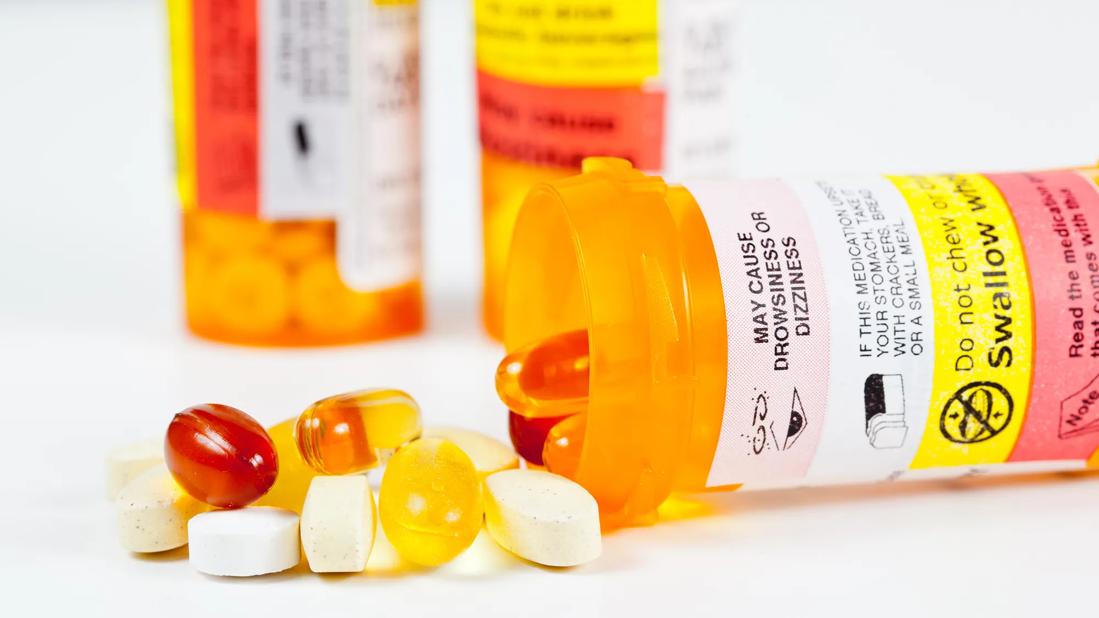‘Black box warnings’ on medications outline potential risks and important instructions

Image content: This image is available to view online.
View image online (https://assets.clevelandclinic.org/transform/cb9e1de9-c12a-4b4e-8b7b-9e1d06a4e816/medication-blackbox-warning-labels-177234783)
Containers of medications with black box warning labels
There’s no question that medications do a lot of good. Whether it’s driving down cholesterol levels, taming heartburn or easing a splitting headache, they can make a difference. That’s why we take them, right?
Advertisement
Cleveland Clinic is a non-profit academic medical center. Advertising on our site helps support our mission. We do not endorse non-Cleveland Clinic products or services. Policy
But if you look closely at the fine print on your medication, a boxed WARNING may grab your attention.
These so-called “black box warnings,” given the border often found around them, are required by the U.S. Food and Drug Administration (FDA) for certain medications that carry serious safety risks.
Let’s learn more from registered pharmacist and drug information specialist Meghan Lehmann, PharmD, RPh.
Boxed medication warnings call attention to potentially serious or life-threatening side effects from using a prescription or over-the-counter drug. In addition, these advisories may share important instructions for the safe use of the medication, including:
If a medication you’re taking carries a risk that warrants a black box warning, that doesn’t necessarily mean you shouldn’t take it. But the risks and benefits of a medication are something your healthcare provider should discuss with you.
“If the warnings involve a serious adverse reaction and apply to a particular patient, their provider should discuss it with them before prescribing the medication,” states Dr. Lehmann. “A pharmacist should reiterate applicable warnings and help address any additional questions.”
Advertisement
The list of medications that come with black box warnings is not short.
Most black box warnings apply to entire classes of medications, like nonsteroidal anti-inflammatory drugs (NSAIDs) commonly found in most homes. Identified risks with many NSAIDs include increased risk of heart attack or stroke.
Other examples of medication classes with these warnings include:
Box warnings are typically printed in bold font and displayed prominently on medication labeling and inserts. You can also find the information online by searching for your medication on the Prescribers’ Digital Reference®.
The FDA typically identifies medication safety concerns through clinical trial data or the review and study of “adverse events” submitted to the agency by consumers and healthcare professionals.
New information can bring FDA updates requiring the addition or expansion of box warnings. (In September 2024, for instance, the agency added a warning about the rare occurrence of serious liver injury from Veozah® (fezolinetant) for hot flashes due to menopause.)
Any medication comes with potential benefits and risks, says Dr. Lehmann. Assessing the balance between the good and bad is often very specific to you and your health situation, age and other realities of life.
Talk to your healthcare provider and pharmacist about any concerns you might have about a particular medication. They can explain the pros and cons or maybe even guide you to an alternative.
“Either your prescriber or pharmacist can help answer any questions you might have,” Dr. Lehmann reinforces.
Advertisement

Sign up for our Health Essentials emails for expert guidance on nutrition, fitness, sleep, skin care and more.
Learn more about our editorial process.
Advertisement
The little blue pill might help with physical arousal, but there are better treatments for low libido in women
Your body’s response to rapid weight loss from the medication may cause shedding
This medication is best used on a limited basis
Authorized take-back programs, services and drop-off locations are the best, safest way to get rid of expired medicine
These illegal supplements have negative impacts for vital organs and may cause psychosis, heart attacks and more
These creams that you apply to your skin can actually help reduce localized pain, swelling and inflammation
Popular among teens, these inhalants give you a quick high, with serious harmful effects
These similar versions of brand-name drugs are safe, effective and often less expensive
Although it could be used as a moisturizer, this new trend is not recommended
Communicating clear limits helps protect your time, energy and emotional well-being
High cholesterol can be genetic, but testing and treatment can lower your heart disease risk